 See them at
See them at
February, 18
1-1 Session with H.E. Mohammed Aljadaan
 Biography
Biography
H.E. Mohammed bin Abdullah Al-Jadaan is the Minister of Finance, a
Board Member of the Public Investment Fund, a Board Member of Saudi
Aramco, the Chairman of General Authority of State Real Estate, and
has membership in several government entities. He represents the
Kingdom of Saudi Arabia in several events around the world,
including a Member of the OPEC Ministerial Council for International
Development Fund, a Member of the Governor's Board of the
International Monetary Fund, heads of the Kingdom's delegation to
the meetings of finance ministers and central bank governors of the
G20, Governor of the Kingdom at the Asian Infrastructure Investment
Bank, a Member of the Governor's Board of the Islamic Development
Bank, a Member of the Governor's Board of Arab Financial
Institutions, and Member of the Council of Arab Finance Ministers.
H.E Mohammed bin Abdullah Al-Jadaan holds a bachelor's degree in
Islamic law focusing on Islamic economics from Imam Mohammed Ibn
Saud Islamic University and a diploma in Legal Studies from the
Institute of Public Administration in Riyadh.
- Brief introduction to event’s theme and objectives
- [Explanation of "The Capital Horizon" as defining the Middle East's increasing importance as a global financial center similar to "the Global South", "BRICs" etc]
- Increased interconnectedness of global markets and the importance of cross-border collaboration and investment
- Emphasis on the need for innovation, adaptability, and collaboration
Opening Speech by the Lord Mayor of the City of London

 Speakers
Speakers
-
Alderman Professor Michael Mainellir
The Rt Hon The Lord Mayor of London, City of London
Alderman Professor Michael Mainellir
The Rt Hon The Lord Mayor of London, City of London

 See them at
See them at
November, 5
Opening Speech by the Lord Mayor of the City of London
 Biography
Biography
Michael Mainelli was elected as Lord Mayor of the City of London on 29 September 2023 and took office on 10 November 2023. He previously served Sheriff of the City of London from 2019-2021, being granted an extraordinary second year in that office, the first time since 1228, in order to provide continuity during the Covid- 19 pandemic.
Educated at Harvard University and Trinity College Dublin, Michael gained his PhD at London School of Economics where he was also a Visiting Professor. Originally a research scientist in aerospace (rocket science) and graphics in the USA and Switzerland, he created the first commercial digital maps of the world in Cambridge. He entered the City of London in 1984 ahead of Big Bang, becoming a partner in 1987 with BDO Binder Hamlyn, and in 1995 a Director of Ministry of Defence research. During a mergers & acquisitions spell in merchant banking with Deutsche Morgan Grenfell, he co-founded Z/Yen, the City of London’s leading think-tank, promoting societal advance through better finance and technology. Z/Yen is renowned for the Global Financial Centres Index, Global Green Finance Index, Long Finance, and numerous technology and finance projects.
He has served as Alderman for Broad Street since 2013; President of Broad Street Ward Club; member of Lime Street and Farringdon Ward Clubs; Trustee of the Lord Mayor’s Appeal, Lord Mayor’s Show, Lord Mayor’s 800th Anniversary Awards Trust, and Morden College; Professor & Life Fellow of Gresham College and Fellow of Goodenough College; Honorary Fellow of King’s College London; Council Member for City & Guilds. Michael is non-executive director of an AIM-listed mining firm and the United Kingdom Accreditation Service overseeing UK laboratories and quality standards. Past posts have included Almoner of Christ’s Hospital, International Financial Advisor to the Taoiseach, and London Waterways Commissioner, as well as Trustee of the International Fund for Animal Welfare and Ocean Alliance.
Michael is passionate about the Livery as a Past Master of the World Traders, Honorary Liveryman of the Worshipful Companies of Furniture Makers, Water Conservators, Marketors, and Tax Advisers, Craft-Owning Freeman of the Watermen & Lightermen, and member of the City Livery Club and Guild of Freemen. Michael works to maintain the City’s pre-eminence as the world’s leading professional, business, legal, technical, and financial services centre, championing the three C’s of Commerce, Community, and Charity.
His wife, Elisabeth, is from Bavaria. Elisabeth trained in hotel management and has worked in Germany and London, where she became a personal assistant to the managing partner of a large accountancy firm. They married in 1996 and have three children. She continues to work at her events company and is a director of a property management company. Elisabeth is a Liveryman of the Worshipful Company of Masons and a Freeman Honoris Causa of the World Traders. As former Thames barge owners restoring SB Lady Daphne over two decades, they retain deep links with the sailing barge community and the venerable Thames Match (1863). Michael and Elisabeth chaired the Guildhall British Red Cross Christmas Market in 2017.
Michael’s hobbies include skiing, woodcarving, diving, dicing with bagpipes, racing sailboats, and dabbling in German, Italian, and French, but even worse Mandarin. He has written over 60 journal articles, 250 business articles and a few books. His humorous novel, Clean Business Cuisine: Now and Z/Yen, written with Ian Harris, was a Sunday Times Book of the Week in 2000; Accountancy Age described it as “surprisingly funny considering it is written by a couple of accountants”. The Price of Fish: A New Approach to Wicked Economics and Better Decisions, also with Ian Harris, won the 2012 Independent Publisher Book Awards Finance, Investment & Economics Gold Prize.
Opening Speech by the Chairperson of the Saudi Tadawul Group

 Speakers
Speakers
-
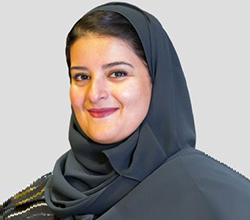
Sarah AlSuhaimi
Chairperson, Saudi Tadawul Group
Sarah AlSuhaimi
Chairperson, Saudi Tadawul Group

 See them at
See them at
November, 5
Opening Speech by the Chairperson of the Saudi Tadawul Group
 Biography
Biography
Mrs. Sarah Al-Suhaimi is the Chairperson of the Saudi Tadawul Holding Group Board of Directors, which is considered the largest exchange in the Middle East. In her capacity, Mrs. AlSuhaimi spearheads Tadawul’ s efforts to integrate the Saudi capital market with global peers by way of aligning the platforms operations and governing regulations.
Mrs. AlSuhaimi is also the Chairperson of Lazard Ltd. in Saudi Arabia, the Middle East and North Africa, and a Board Member at the General Authority of Statistics,the Saudi Telecom Company, the Saudi Arabian Airlines Public Agency, the Cultural Development Fund, and the Regional Voluntary Carbon Market Company. In addition, Mrs. AlSuhaimi is a trustee of the International Financial Reporting Standards Foundation and a We - Fi Leadership Champion.
Mrs. Al - Suhaimi served as the CEO of Saudi National Bank Capital (SNB Capital) from 2014 to 2021 and was a member of the Board of Directors. During h er tenure, AUMs grew by over four times, NCBC's brokerage market share increased by more than 10% and the bank executed multiple large investment banking mandates earning league table status in DCM and M&A.
Mrs. AlSuhaimi served a two - year term as Vice - Ch airperson of the Advisory Committee of the Capital Market Authority (CMA) Board of Directors from 2013 to 2015.
Prior to that, Mrs. AlSuhaimi led the asset and wealth management division at Jadwa Investment Company, where she was also the Chief Investment Officer from 2007 to 2014, and a member of the firms’ Management Committee. Mrs. AlSuhaimi started her career within asset management at Samba Capital
Mrs. AlSuhaimi holds a Bachelor’s degree in Accounting with Honors from King Saud University, and comp leted the General Management program in Harvard Business School.
Keynote Dialogue 1: HMG’s Investment Strategy and Opportunities for UK-KSA Collaboration by the Minister of State for Investment of the United Kingdom

 Speakers
Speakers
-

Poppy Gustafsson
Minister of State for Investment of the United Kingdom, HM Treasury
Poppy Gustafsson
Minister of State for Investment of the United Kingdom, HM Treasury

 See them at
See them at
November, 5
Keynote Dialogue 1: HMG’s Investment Strategy and Opportunities for UK-KSA Collaboration by the Minister of State for Investment of the United Kingdom
 Biography
Biography
Poppy Gustafsson OBE was appointed Minister of State (Minister for Investment) jointly in the Department for Business and Trade and HM Treasury on 10 October 2024.
Prior to entering government, Poppy was part of the team who founded Darktrace in 2013 and brought its AI - powered cybersecurity solutions to market. Under her leadership, Darktrace experienced significant growth and global expansion leading to the company being listed on th e London Stock Exchange in 2021, before being sold for over £4bn.
Poppy is a chartered accountant and was honoured with an OBE for services to cybersecurity in 2019. Poppy studied maths at the University of Sheffield and is married with two children
Keynote Dialogue 2: UK/KSA Financial Services Cooperation.

The Economic Secretary to the Treasury will provide a keynote speech about ongoing cooperation between HM Treasury and the KSA Ministry of Finance on financial services.
 Speakers
Speakers
-

Tulip Siddiq
Economic Secretary to the Treasury and City Minister, HM Treasury
Tulip Siddiq
Economic Secretary to the Treasury and City Minister, HM Treasury

 See them at
See them at
November, 5
Keynote Dialogue 2: UK/KSA Financial Services Cooperation.
 Biography
Biography
Tulip Siddiq was appointed Parliamentary Secretary (Economic Secretary to the Treasury and City Minister) at HM Treasury on 9 July 2024. She was elected as the MP for Hampstead and Highgate in July 2024
The Economic Secretary to the Treasury (EST) is the City Minister and is responsible for :
Financial services policy, reform and regulation including :
Financial conduct, including relationship with the FCA
Financial stability, including relationship with the PRA
Competitiveness and growth of the financial services sector
Banking and consumer credit
Insurance and pensions markets
Financial inclusion and capability
Sustainable finance
Fintech and crypto assets, including Central Bank Digital Currency
International financial services including regulatory cooperation and financial services EU issues
Sponsorship of UKGI and State - owned financial assets, including NatWest shareholding
Cash and Payments including Royal Mint
Supporting the C hancellor on capital markets and listings
Women in Finance and supporting the Chancellor on the Women in the Economy agenda
Engagement with the Financial Services sector
Financial services tax, including bank levy, bank corporation tax surcharge, Insurance Premium Tax
Personal savings policy, including ISAs, savings tax and pensions tax policy
Debt and reserves management policy including green gilt, National Savings and Investment (NS&I) and Debt Management Office (DMO)
Financial sanctions and countering e conomic crime, money laundering and illicit finance, including the Office for Financial Sanctions Implementation (OFSI)
The Treasury’s interest in Overseas Territories and Crown Dependencies issues
Parliamentary deputy on economy issues
Fireside Chat 1: UK/KSA Financial Services Cooperation

The Economic Secretary to the Treasury will provide a keynote speech about ongoing cooperation between HM Treasury and the KSA Ministry of Finance on financial services.
 Speakers
Speakers
- Tulip Siddiq, Economic Secretary to the Treasury and City Minister, HM Treasury
Fireside Chat: Global Standards: Enhancing Saudi-UK Capital Market Integration

His Excellency Capital Market Authority Chairman of Saudi Arabia will discuss the regulatory frameworks established by the CMA and its UK counterpart to ensure transparency, integrity, and investor protection within capital markets.
 Speakers
Speakers
-
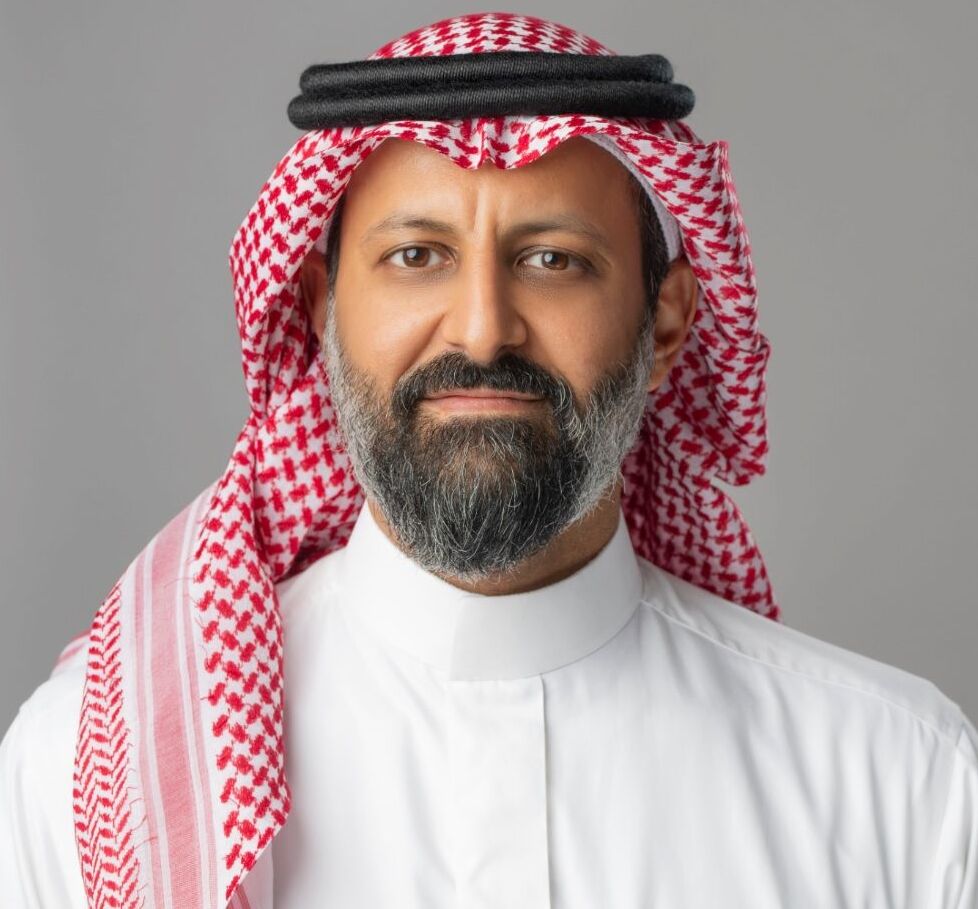
H.E. Mohammed Elkuwaiz
Chairman, Capital Market Authority of Saudi Arabia
 Moderator
Moderator
-

Mohammed Islam
Host & Founder, The Mo Show
H.E. Mohammed Elkuwaiz
Chairman, Capital Market Authority of Saudi Arabia

 See them at
See them at
November, 5
Fireside Chat: Global Standards: Enhancing Saudi-UK Capital Market Integration
 Biography
Biography
Mr. Mohammed A. El - Kuwaiz was appointed as the C hairman of the board of the Capital Market Authority (CMA) of Saudi Arabia in July 201 7 . Prior to being Chairman , Mr. El - Kuwaiz was the Vice Chairman of the board of the CMA since August 2016.
Prior to joining the CMA , Mr. El - Kuwaiz was the Co - founder and CEO of Derayah Financial Company. He was formerly a management consultant with McKinsey & Company. Prior to that, he worked i n investment banking and corporate finance with Samba Financial Group.
Moreover, Mr. Elkuwaiz has served as a board member in the Public Pension Agency, Al Yamamah Company for Reinforcing Steel Bars, Al Bilad Bank, in addition to his membership in the Se curities and Investments Committee in Riyadh Chamber of Commerce and Industry, the Investment Committee in King Faisal Foundation, the Investment Committee in Sulaiman Bin Abdulaziz Al - Rajhi Holding Company, as well as the CMA’s Advisory Committee
Mr. El - Kuwaiz obtained an MBA from New York University’s Leonard N. Stern School of Business, specializing in finance and entrepreneurship in 2003 . He received a Bachelors of Administrative Sciences with Honors from King Saud University in Saudi Arabia majoring in Law in 1998
Mohammed Islam
Host & Founder, The Mo Show

 See them at
See them at
November, 5
Fireside Chat: Global Standards: Enhancing Saudi-UK Capital Market Integration
 Biography
Biography
Mohammed Islam is the host and founder of 'The Mo Show', a podcast in English from Saudi Arabia in its fourth season. The show aims to break the stereotypes and misconceptions by shedding light on the progression and accomplishments of those who share their personal stories and experiences.
Panel 1: Unleashing Capital Market Potential

Discussing the diversity of investment opportunities such as fixed income, cross-listings, and the growth of the Saudi Exchange
Discussing the latest trends shaping global capital markets, including digital transformation, ESG investing, and regulatory developments
Identify opportunities for cross-border collaboration, potential investment sectors, and strategies for facilitating international capital flows and market integration.
 Speakers
Speakers
-
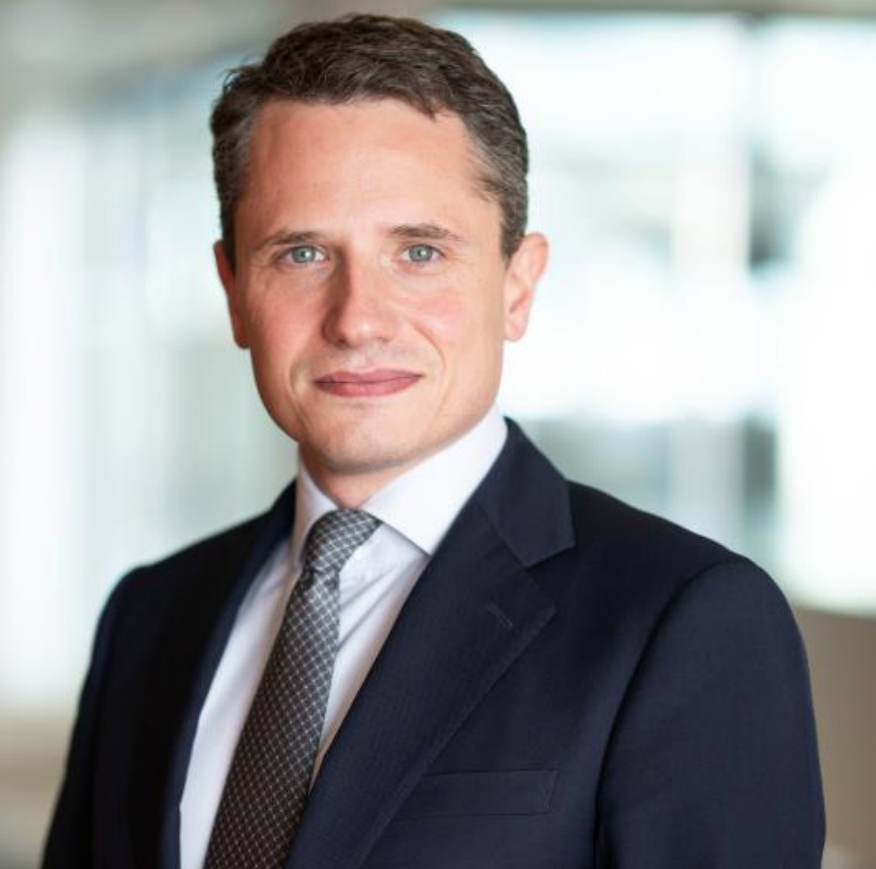
Charlie Walker
Deputy Chief Executive Officer, London Stock Exchange
-

Lee Hodgkinson
Group Chief Strategy Officer, Saudi Tadawul Group
-

Faris AlGhannam
Chief Executive Officer, HSBC Saudi Arabia
 Moderator
Moderator
-

Nicola Watkinson
Managing Director - International Team, TheCityUK
Mr. Charlie Walker
Deputy Chief Executive Officer, London Stock Exchange

 See them at
See them at
November, 5
Panel 1: Unleashing Capital Market Potential
 Biography
Biography
Charlie is Deputy CEO of the London Stock Exchange plc having joined in 2018 to lead the Equity and Fixed Income Primary Markets businesses.
Charlie is a capital markets specialist and previously worked within J.P. Morgan Cazenove’s Equity Capital Markets team responsible for originating and executing equity transactions. He has assisted in raising over £45bn of equity capital across five continents on behalf of clients.
During his time at JPMC, Charlie also worked in Sydney raising capital for companies on the Australian Stock Exchange as well as taking primary responsibility for the South African equity capital markets practice.
Lee Hodgkinson
Group Chief Strategy Officer, Saudi Tadawul Group

 See them at
See them at
November, 5
Panel 1: Unleashing Capital Market Potential
 Biography
Biography
Lee joined the Group in August, 2022, as Group Chief Strategy Officer.
Lee has more than 33 years of capital markets experience and possesses a wide range of expertise from business development and corporate planning to strategy, mergers and acquisitions, and operations. In addition, Lee has extensive experience of working in Europe, America, China, Russia and India across listed companies, consortia, joint ventures and nonprofit enti ties.
Lee he was studied at the London School of Economics and Political Science and Harvard Business School.
Faris AlGhannam
Chief Executive Officer, HSBC Saudi Arabia

 See them at
See them at
November, 5
Panel 1: Unleashing Capital Market Potential
 Biography
Biography
Faris AlGhannam is currently Chief Executive Officer and Board Member of HSBC Saudi Arabia and a member of HSBC Middle East, North Africa and Turkey Executive Committee. Prior to this, Faris was leading the investment banking, capital markets and issuers services business and operations for HSBC in the Kingdom of Saudi Arabia. Before joining HSBC, Faris worked for several years at another banking institution in London, the United Kingdom covering capital markets in the UK and EMEA.
Faris is also an Independent Director of Board and Chairman of the Audit Committee of a leading pharmaceutical manufacturer in MENA region as well as an Independent Director of the Board of a leading consumers company in the Kingdom. Faris is a member of the Finance Program Board for College of Business Administration, Prince Sultan University.
Faris holds an MBA from the Jones School of Business at Rice University and a BSc in Accounting from Prince Sultan University (first honors).
Nicola Watkinson
Managing Director - International Team, TheCityUK

 See them at
See them at
November, 5
Panel 1: Unleashing Capital Market Potential
 Biography
Biography
Nicola Watkinson leads TheCityUK’s International team, which provides unique insight and deep expertise into the markets and trade relationships underpinning the UK’s success as a leading global financial centre
Prior to joining TheCityUK, Nicola was G eneral Manager, The Americas, for the Australian Trade and Investment Commission and Deputy Consul General in New York, where she led a 90 - strong team based across North and South America and managed five consulates.
She has previously held senior posit ions across Asia, Europe and Australia leading international business development for the Australian Government. This includes her roles as Minister Commercial and Senior Trade & Investment Commissioner, South Asia, in New Delhi, Consul General and Senior Trade & Investment Commissioner, Western Europe, in Frankfurt and Global Manager, Investment, in Melbourne. Nicola was the Global Champion for Diversity & Inclusion and sponsored the organisation’s Capability Development. She is a regular presenter on trad e and investment policy at academic institutions.
Panel 2: New Horizons: How the Investment Landscape is Evolving

Discuss strategic initiatives and progress made by KSA organizations represented on the panel in diversifying KSA’s economy, with a focus on specific investment and projects.
The importance of a global approach to investment.
Investment opportunities in both the UK and KSA, including opportunities for UK/KSA companies and businesses to work together to promote growth in both jurisdictions.
 Speakers
Speakers
-
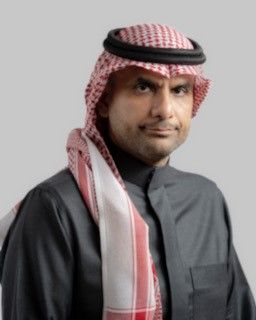
Abdulaziz AlAjaji
Regional Co-Head MENA & Chief Executive Officer, Morgan Stanley Saudi Arabia
-

Dr. Abdullah AlShwer
Chief Executive Officer, Riyad Capital
-
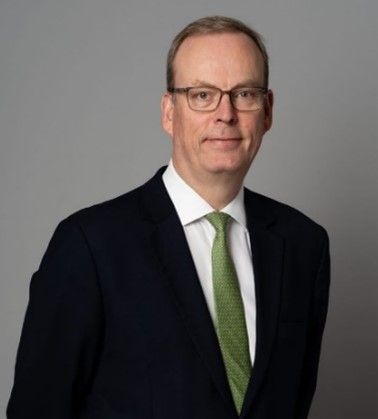
Tim Reid
Chief Executive Officer, UK Export Finance
 Moderator
Moderator
-
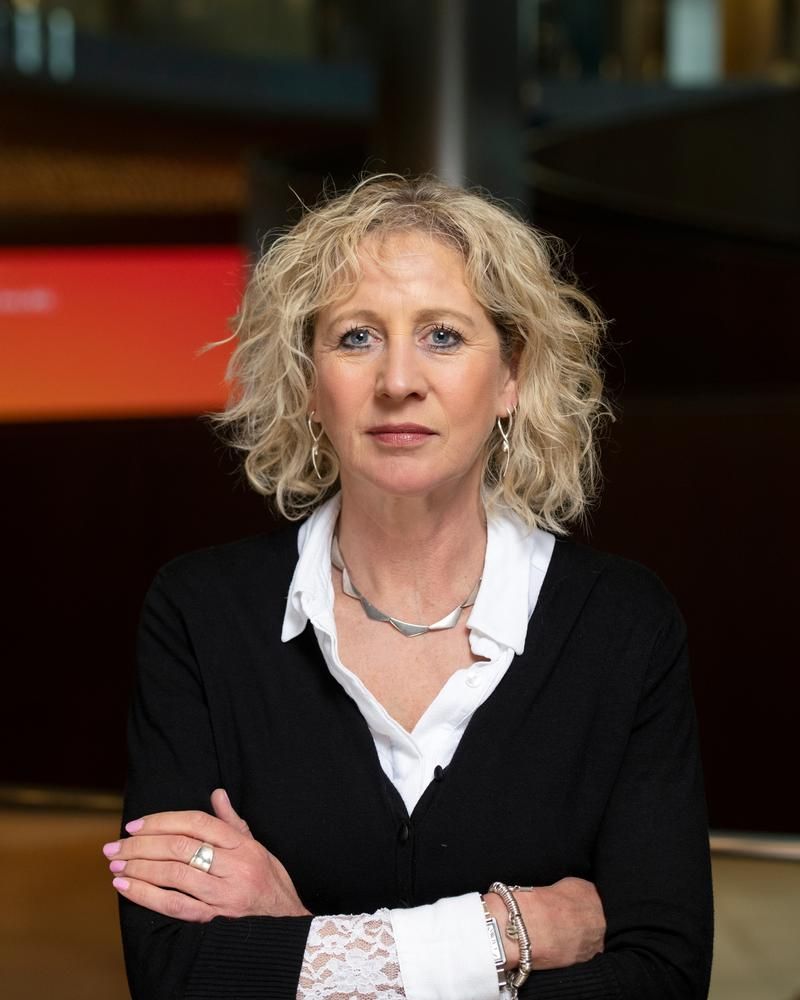
Sallianne Taylor
Head of Government Affairs - EMEA, Bloomberg
Abdulaziz AlAjaji
Regional Co-Head MENA & Chief Executive Officer, Morgan Stanley Saudi Arabia

 See them at
See them at
November, 5
Panel 2: New Horizons: How the Investment Landscape is Evolving
 Biography
Biography
Abdulaziz Alajaji joined Morgan Stanley in 2017 as the CEO of Morgan Stanley Saudi Arabia, and in February 2023, he became Regional Co - Head for MENA. He oversees all the Firm’s business in the Middle East and North Africa
Prior to that, he worked at J.P. Morgan Saudi Arabia for six years where he led the corporate banking business
Abdulaziz started his career in the Financial Sector when he joined the Saudi British Bank’s (SABB) Junior Officers Development Program. His last role at SABB was as a senior banker in the corporate banking team. He has 21 years’ experience across investment and wholesale banking.
Abdulaziz is a board member at Morgan Stanley Saudi Arabia, Altamayyuz Academy and the US - Saudi Business Council. He also served on the CMA Advisory Committee for two years from 2021 - 2023.
Abdulaziz received his BA degree in Business Management from Menlo College, California, USA
Dr. Abdullah AlShwer
Chief Executive Officer, Riyad Capital

 See them at
See them at
November, 5
Panel 2: New Horizons: How the Investment Landscape is Evolving
 Biography
Biography
Dr. Abdullah Alshwer is the CEO of Riyad Capital ; a leading asset manager with c. $ 24bn in assets u nder management (AuMs) . In this role, he oversees the firm ’s four business lines – asset and wealth management, brokerage, corporate investment banking, and its leading securities services business
Prior to Riyad Capital, Dr Alshwer served as the CEO and CIO of Ashmore Saudi Arabia where he considerably expande d the firm’s local operations , coverage and AuMs resulting in a significant increase in the MENA region s’ contribution to Ashmore Group UK's revenue - from less than 1% to over 10% within five years. He joined Ashmore from the Higher Education Fund (HEF) wh ere he was th e Secretary General and CEO managing a multi - asset, multi - market investment portfolio .
Dr Alshwer w as a S enior A dvisor to the Minister of Education , served as the Chairman and member of the Advisory Committee at the Capital Market Authority ( CMA), and held board memberships within several local and international companies across various sectors including banking, finance, and technolog y .
Dr. Alshwer holds a Ph.D. in Finance from the Lubar School of Business , an MBA from the John Neff College of Business and is a CFA Charterholder .
Tim Reid
Chief Executive Officer, UK Export Finance

 See them at
See them at
November, 5
Panel 2: New Horizons: How the Investment Landscape is Evolving
 Biography
Biography
Tim is the Chief Executive of UK Export Finance, the UK’s export credit agency. He is also a Director General in the Department for Business and Trade, and a member of its Executive Committee and Management Board.
Tim joined UKEF in 2022 as Director of Business Group. He was previously at HSBC, where he spent 34 years in a variety of roles.
Tim has an international outlook and proven track record helping customers expand their business internationally. At HSBC, he managed businesses across Europe, the Americas and the Middle East and North Africa, and was most recently the Global Head of Transaction Banking for the bank’s Global Banking division.
UK Export Finance is the UK’s export credit agency. We advance prosperity by ensuring no viable UK export fails for lack of finance or insurance, doing that sustainably and at no net cost to the taxpayer.
Sallianne Taylor
Head of Government Affairs - EMEA, Bloomberg

 See them at
See them at
November, 5
Panel 2: New Horizons: How the Investment Landscape is Evolving
 Biography
Biography
Sallianne Taylor is EMEA Head of Government Relations at Bloomberg.
The Team advocates for Bloomberg, Bloomberg’s clients and stakeholders within the global regulatory and government space. Prior to joining the team Sallianne s pent two years on secondment at His Majesty’s Treasury working on the Wholesale Market Review which concentrated on reforms to the UK’s Capital Markets following its exit from Europe.
Sallianne joined Bloombe rg in 1989 and has held positio ns within Sales, Trading Solutions and Product De velopment. Prior to her time at His Majesty’s Treasury, she led the Market Structure St r ategy team which was a natural progression from Global Manager of Exchange Business M anage ment where she oversaw Bloomberg’s relationships with the exchan ges and trading venues . Sallianne holds a Bachelor of Arts degree in French and Italian from Royal Holloway and Bedford New College (University of London) . She represents Bloomberg on the executive committee of FISD (Financial Information Services Division of the Software & Information I ndustry Association) and is on the board of FISD’s parent company, SIIA (Software & Information Industry Association). Sallianne was named Woman of the Year at the inaugural Waters Women in Technology & Data Awards 2018 and in the same year recognised as one of Top 100 Most Influential Women in Finance in Europe by Financial News.
In 2024 Sallianne was awarded the Financial Information Lifetime Achievement Award at the 16 TH biennial World Financial Information Conference.
Panel 3: Integrating Sustainability into the Financial Services Sector: Opportunities and Risks for Investment and Regulation

Overview of the UK and KSA’s approach to sustainable finance (from a regulation and investment perspective).
The role of the UK and KSA in the global sustainability effort.
Opportunities for UK/KSA collaboration on sustainable finance.
 Speakers
Speakers
-
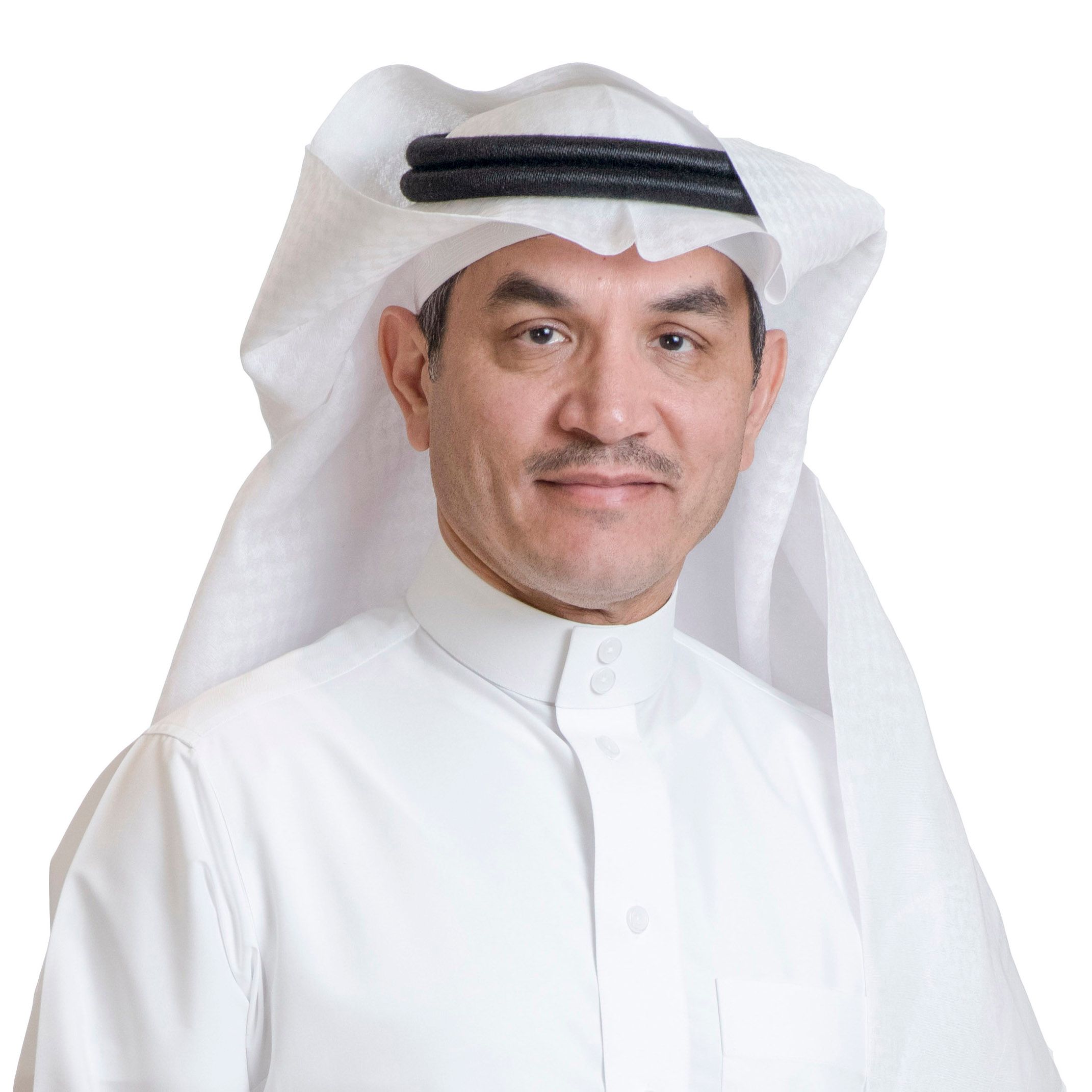
Abdulaziz AlOnaizan
Chief Executive Officer, Bank AlBilad
-

Vanessa Havard-Williams
Chairperson, The Transition Finance Market Review
-
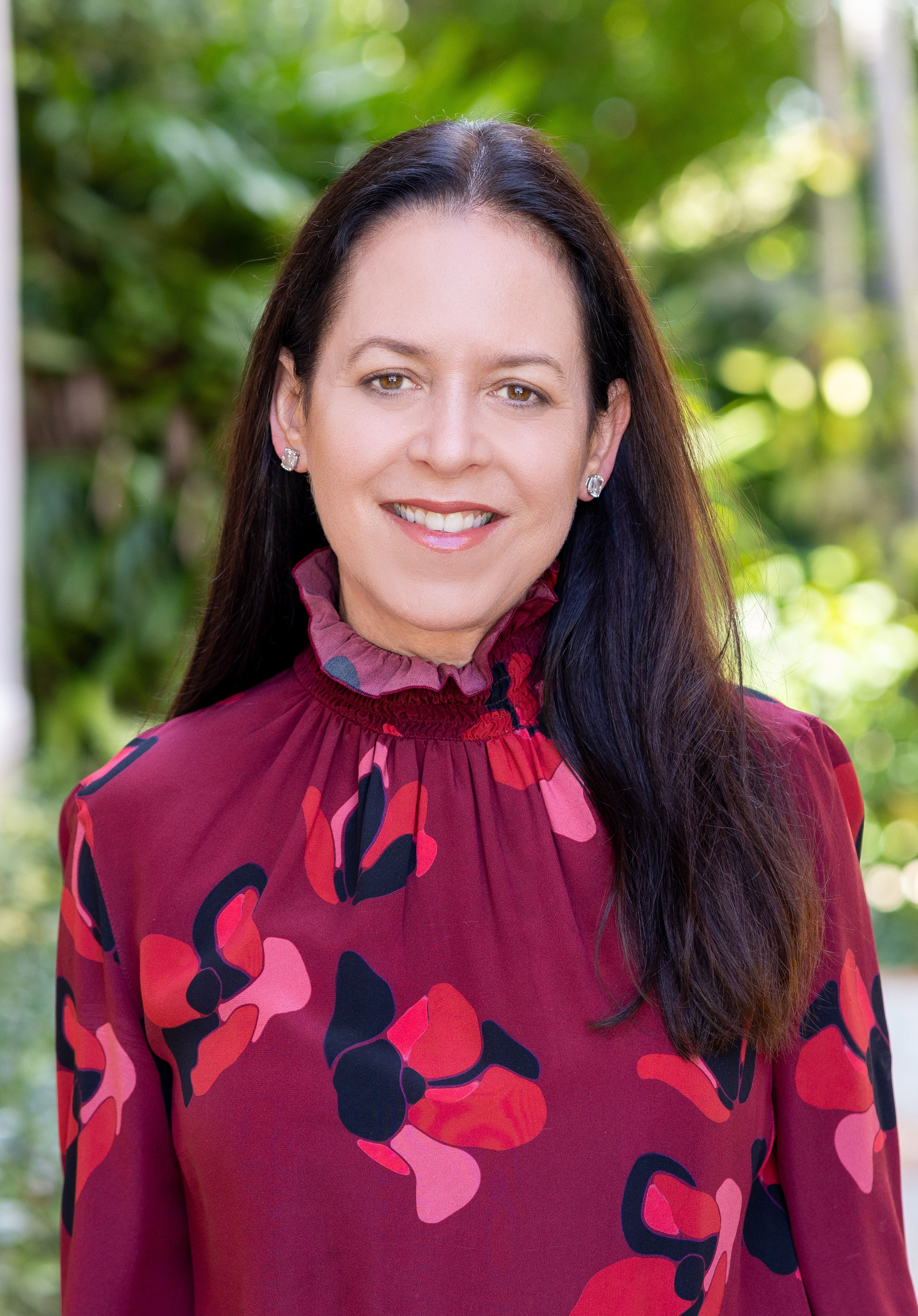
Dana Barsky
Global Head of Sustainability Strategy & Net Zero, Standard Chartered
 Moderator
Moderator
-

Jack Knight
Deputy CEO, Investment Association
Abdulaziz AlOnaizan
Chief Executive Officer, Bank AlBilad

 See them at
See them at
November, 5
Panel 3: Integrating Sustainability into the Financial Services Sector: Opportunities and Risks for Investment and Regulation
 Biography
Biography
Abdulaziz AlOnaizan, is CEO and member of the Board of Directors and Executive Committee of Bank Albilad. He is also Chairman of the Board of Enjaz Payment Services Company and Vice - Chairman of the Board and Member of the Executive Committee of Albilad Capital.
AlOnaizan is a seasoned banker with over 3 0 years of experience in the field of treasury, investment, risk, credit, strategy, and leadership. Since taking the helm in 2016, Bank Albilad has consistently returned double - digit growth.
Outside the Bank Albilad Group, Mr. AlOnaizan is a Board Member of the Advisory Board of the Zakat, Tax and Customs Authority (ZAT CA ) . He is a Board Member and Chairman of Governance and Cybersecurity of the Real Estate Development Fund (REDF) and Board Member and Chairman of the Executive Committee of the Human Resour ces Development Fund (HRDF). He sits on the Board of Buna (Arab Regional Payments Clearing and Settlement Organization) as Saudi Arabia’s representative.
Mr. AlOnaizan obtained his bachelor's degree in research Methodology and Quantitative Methods from Ki ng Saud University College of Business Administration.
Vanessa Havard-Williams
Chairperson, The Transition Finance Market Review

 See them at
See them at
November, 5
Panel 3: Integrating Sustainability into the Financial Services Sector: Opportunities and Risks for Investment and Regulation
 Biography
Biography
Vanessa is leader and a founding partner of Linklaters’ global environment and climate practice and co - ordinates Linklaters global ESG offering. She is also a member of our Risk and Resilience and Crisis Management team. She advises financial institutions, corporates and funds, across the spectrum of emerging ESG requirements, including disclosure obligations, governance and risk management and the integration of transition strategies into wider corporate governance, culture and management systems.
She is a member of the UK Government’s Transition Plan working group and of the UK Export Credit Advisory Group.
Dana Barsky
Global Head of Sustainability Strategy & Net Zero, Standard Chartered

 See them at
See them at
November, 5
Panel 3: Integrating Sustainability into the Financial Services Sector: Opportunities and Risks for Investment and Regulation
 Biography
Biography
A senior sustainable finance executive, Ms. Barsky has over 20 years of corporate finance and sustainability experience. She is currently the Global Head of Sustainability Strategy and Net Zero for Standard Chartered Bank, based in London (and previously Singapore), where she is tasked to drive key sustainability agenda items that include overseeing the Group’s delivery of its net zero program and driving capital mobilization into cl imate and transition finance. She manages key groups including Sustainability Disclosures and Engagement, Blended Finance, Carbon Markets and Finance, Nature Finance and Social Finance. Prior to Standard Chartered Bank, Ms. Barsky was the Global Head of Sustainable Finance at Credit Suisse, based in London, and served as President of Growth for Good, a special purpose acquisition company focused on sustainable companies critical to the decarbonization of the global economy. In her various roles, she has mobilized capital for climate finance across asset classes and has worked with multiple MDBs on blended finance transactions, sustainable issuances, and the creation of investment products that specifically mobilize capital to address climate change and su pport the needed transition to a net zero world. She currently serves on the Steering Group for Glasgow Financial Alliance for Net Zero (GFANZ) and supports the World Bank’s Private Sector Investment Lab.
Jack Knight
Deputy CEO, Investment Association

 See them at
See them at
November, 5
Panel 3: Integrating Sustainability into the Financial Services Sector: Opportunities and Risks for Investment and Regulation
 Biography
Biography
The Investment Association is the trade body and industry voice for UK investment managers. The UK investment management industry plays a major role in the economy, helping millions of individuals and families achieve their life goals by growing their investments. Our members range from small, independent UK investment firms to global firms. Collectively, they manage over £9. 1 trillion of assets on behalf of their clients in the UK and around the world.
As Deputy CEO, Jack helps to lead the IA Exe cutive Committee. He is responsible for international trade & investment policy and activity, as well as the organisation ’ s finance, HR, IT, and membership functions, including the IA Enterprises events, training, and Engine business lines. Jack is Company Secretary and secretary to the IA Board Committees.
He was previously COO at the Takeover Panel, the UK's regulator of takeovers and mergers.
Jack has an MA from Cambridge University and an MAP certificate from Said Business School, Oxford University
Sprint 1: Global Economic Outlook: Evolving Global Dynamics and Economic Shifts

Globalisation and geoeconomics drove macro-economics for decades, but further shocks to the system drive the geopolitical balance higher in the world view. In an era of sluggish growth (rate cuts, inflation, US elections) many have a cautiously optimistic view. What is the latest economic outlook globally, and what are the different regional influences driving the global economy?
Sprint 2: Middle East Economic Outlook: Regional Growth, Economic Diversification, and Driving FDI

The IMF predicted growth for the region, and growth expectations in the region outpace those of all other regions. With major reforms and projects still pressing ahead, we are seeing the impacts of non-oil reliance progressing further.
This session will deep dive into regional economics and in particular Saudi Arabia. With growth across consumption, travel, tourism and hospitality, how does that help drive FDI and further growth to progress the agenda towards 2030?
 Speakers
Speakers
-
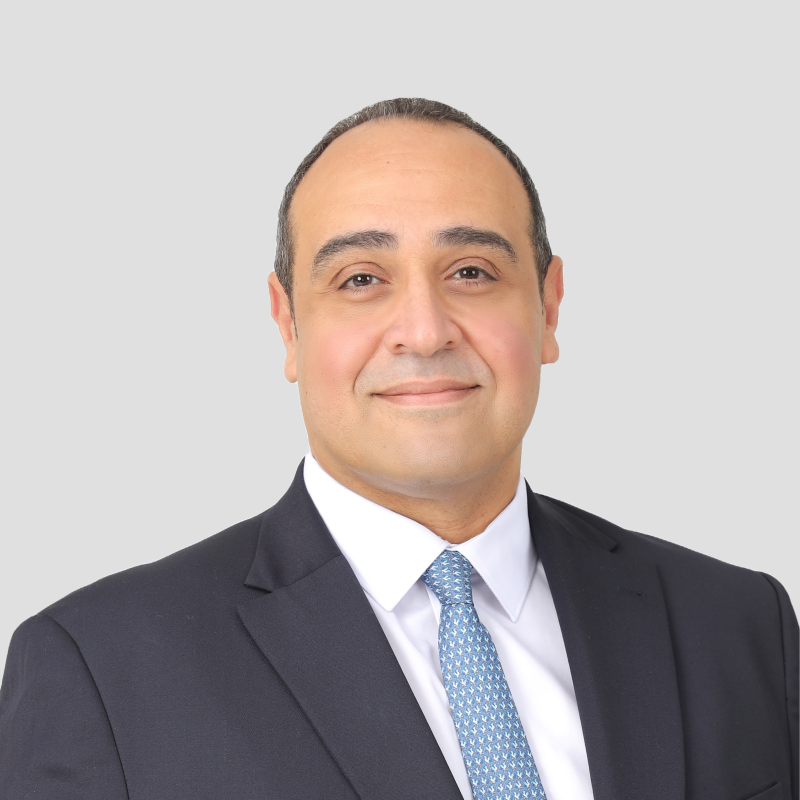
Ahmed Shams El Din
Head of Research
EFG Holding KSA
 See them at
See them at
Sprint 2: Middle East Economic Outlook: Regional Growth, Economic Diversification, and Driving FDI
 Biography
Biography
Ahmed Shams El Din- Head of Research, EFG Hermes Ahmed Shams El Din is a finance and capital markets professional, professor and speaker, with extensive experience in emerging markets, corporate valuation and investment advisory.
Currently, Shams El Din is the Head of Research of EFG Hermes and a Member of the IB Management Committee at EFG Hermes, the largest investment bank in the Middle East and North Africa (MENA) region.
He heads a top-ranked team of economists, analysts and capital markets’ strategists in the Middle East, Africa, Europe and Asia, and has taken remarkable strides in expanding EFG Hermes’ coverage to 27 Emerging and Frontier markets. He led the team to top international rankings by global institutions consistently, including the 1st place in Frontier Markets and the 2nd place in MENA several times by Thomson Reuters Extel Survey / Institutional Investors (II), and the 1st place by the Saudi Stock Exchange Tadawul (Capital Markets Awards 2022 and 2023).
During his career, Shams El Din worked on the largest, and most prominent, initial public offerings (IPOs) in Egypt, Saudi Arabia, the UAE, Kuwait and Oman, in addition to other equity listings in LSE and Euronext. He led EFG Hermes’ coverage in different sectors, including oil and gas, petrochemicals, fertilisers, utilities, industrials, building materials and construction, where he worked on the largest listed companies in the MENA region (EGX, Saudi Tadawul, DFM, ADX, DSE, KSE, ASE) and international markets (Euronext, LSE).
Shams El Din has been consistently recognised as a top-ranked analyst by international institutions; He won the 3rd place in Europe, Middle East and Africa (EMEA) in 2015 by Institutional Investors (II) and the 1st place in the Middle East and North Africa (MENA) several times by the Euromoney Middle East.
As an Adjunct Faculty Professor of Management at the American University in Cairo (AUC), Shams El Din taught corporate finance and asset valuation to MBA and master of corporate finance (MCF) students, as well as undergraduates.
An MBA holder from INSEAD, Global Executive MBA, Shams El Din writes on the economy and capital markets in local and international media, and regularly speaks in economic and business conferences.
Sprint 3: The Evolution of Capital Flows

Examining theoretical foundations of capital flows in a rapidly transforming global economy. Building on macroeconomic and regional insights from the previous sessions, this session will focus on the shifting paradigms of capital allocation across borders, sectors, and asset classes. How are key sectors responding to the evolving economic landscape and regional dynamics outlined earlier. What are the forces reshaping industries such as technology, energy, healthcare, and finance, (focusing on digital transformation, green initiatives, and demographic-driven demands).
 Speakers
Speakers
-

Raman Subramanian
Managing Director & Global Head of Solutions Research
MSCI
Sprint 4: Commodities and Growth: Unveiling Opportunities in a Dynamic Market

This session will explore the transformative role of commodities in shaping the GCC’s economic growth and advancing its capital markets. Despite shifts in supply and demand dynamics, the region is uniquely positioned to leverage its commodities expertise to drive innovation, resilience, and long-term value creation. Panelists will delve into strategies for navigating market fluctuations, enhancing competitiveness, and leveraging the potential of commodities to support regional and global economic ambitions.
 Speakers
Speakers
-

Russell Robertson
Chief Commercial Officer
Gulf Mercantile Exchange
Sprint 5: Economic Express: Fast-Tracking Insights on Global Capital Trends

In this rapid-fire session, top economists and financial leaders tackle the most pressing questions shaping global capital markets today. From evolving economic landscapes to regional dynamics driving growth, this engaging Q&A format will deliver fast-paced, insightful discussions on emerging trends, challenges, and opportunities. With a focus on audience interaction, panelists will share their perspectives on navigating uncertainties and leveraging innovative strategies to sustain economic momentum in a multipolar world.
 Speakers
Speakers
-

Rajeev Sibal
Senior Global Economist
Morgan Stanley -

Shakir Iqbal
Head of CEEMEA Equity Sales
J. P. Morgan
Rajeev Sibal
Senior Global Economist
Morgan Stanley
 See them at
See them at
Sprint 5: Economic Express: Fast-Tracking Insights on Global Capital Trends
 Biography
Biography
KAFD in Focus: Building a Business Ecosystem

An exclusive fireside chat which unveils the latest milestones in KAFD’s transformative journey. Discover the nexus between urban development, economic diversification, and strategic connections and how they are shaping a financial center of the future.
 Speakers
Speakers
-

Ibrahim AlSughayer
Chief Financial Officer
KAFD
Panel 3: Global Capital Markets: Enhancing Resilience and Connectivity

This panel will bring together global leaders from leading exchanges and financial organizations to discuss strategies for enhancing market resilience and improving risk management amid global challenges. Panellists will discuss the critical role of exchanges in advancing ESG standards, fostering sustainable finance, and driving technological innovation. The discussion will also focus on the power of international collaboration and market integration to enhance global connectivity, improve transparency, and align regulatory frameworks, ensuring a robust and interconnected global financial ecosystem.
 Speakers
Speakers
-

Eng. Khalid AlHussan
Chief Executive Officer
Saudi Tadawul Group -

Bonnie Y Chan
Chief Executive Officer
Hong Kong Exchanges and Clearing Limited (HKEX) -
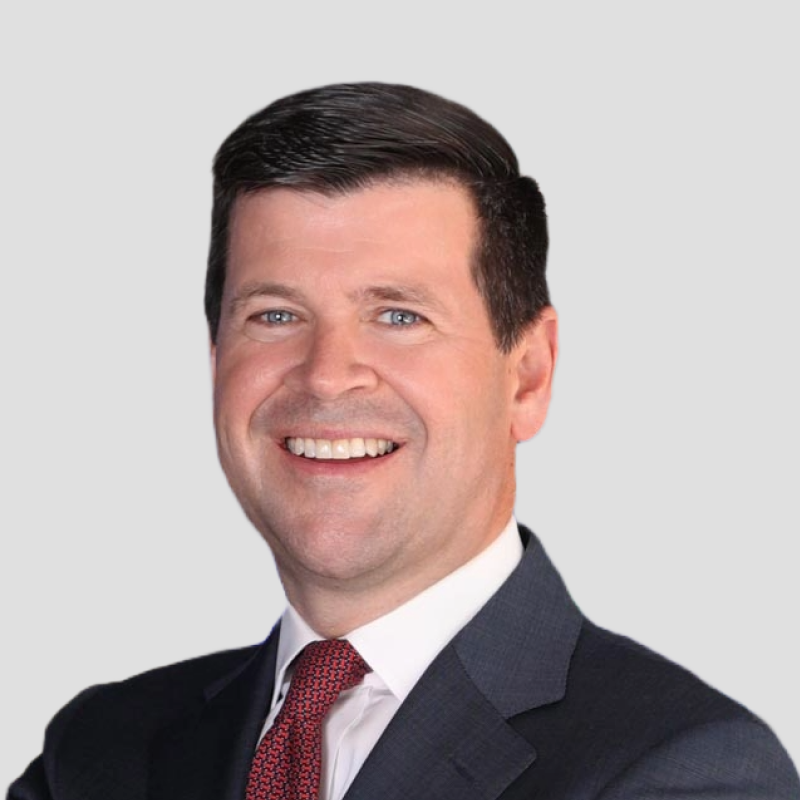
Bob McCooey
Vice Chairman, Head of International Listings
Nasdaq -

Nandini Sukumar
Chief Executive Officer
The World Federation of Exchanges
 See them at
See them at
Panel 3: Global Capital Markets: Enhancing Resilience and Connectivity
 Biography
Biography
Bob McCooey is Vice Chairman and the Head of International Listings at Nasdaq. In this role, Bob leads business development for new listings in Asia Pacific, Europe and the Middle East as well as overseeing relationship management with companies throughout these regions. In his role as the Head of Nasdaq’s Financial Sponsor Coverage Group, he works closely with premier financial sponsors globally to optimize and integrate interactions, ensuring long-term partnerships and relationships.
During his 18-year tenure at Nasdaq, Bob has held several leadership roles across Nasdaq’s domestic New Listings business and the Capital Markets Group, as well as building what is Nasdaq’s highly successful listings franchises in both APAC and Latin America.Prior to joining Nasdaq, Bob founded and served as the Chief Executive Officer of The Griswold Company, a brokerage firm, from 1988 until 2006. He was a member of the New York Stock Exchange Board of Executives from 2003-2006.
Bob has an AB in Political Science from the College of the Holy Cross.
 See them at
See them at
Panel 3: Global Capital Markets: Enhancing Resilience and Connectivity
 Biography
Biography
Bonnie Y Chan was appointed the Chief Executive Officer of Hong Kong Exchanges and Clearing Limited on 1 March 2024.
Ms Chan brings more than 30 years of global capital markets leadership and expertise. She has played a leading role in supporting the transformation of Hong Kong’s listed market and infrastructure, enhancing market quality, attractiveness, and efficiency, and helping position HKEX as a leading global exchange group.
Ms Chan has held leadership roles in legal and financial services with Asia-Pacific and global responsibilities. Before becoming CEO, Ms Chan was HKEX’s Co-Chief Operating Officer, where she oversaw the Group’s key operational and strategic functions. Ms Chan first joined HKEX as Head of IPO Transactions in 2007 from Morgan Stanley, where she spent four years leading the legal function for the investment bank’s Asia capital markets business. She rejoined HKEX in 2020 as Head of Listing, after serving as a partner at international law firm Davis Polk & Wardwell focusing on capital markets between 2010 and 2019.
Ms Chan is a frequent contributor to the World Economic Forum and is a member of the Forum’s Centre for Financial and Monetary Systems Advisory Council.
In Hong Kong, Ms Chan served as a member of the Financial Services Development Council between 2015 and 2018, and was a member of its Board of Directors between 2019 to 2020. She was also a member of the Standing Committee of Company Law Reform and the Disciplinary Panel of the Hong Kong Institute of Certified Public Accountants.
Ms Chan was featured on Fortune’s Most Powerful Women in business list for 2024 and was ranked in the Top 10 in Asia. She was also recognised as one of the World Federation of Exchanges’ Women Leaders between 2021 and 2023. In addition, Ms Chan was recognised among IFLR1000’s Asia Best Lawyers in 2019 and was named The American Lawyer’s Dealmaker of the Year in 2018.
Ms Chan holds a Bachelor of Laws from the University of Hong Kong and a Master of Laws from Harvard Law School. She is admitted as a solicitor in Hong Kong and an attorney at law in New York State.
Panel 4: From Desert to Dynamo: The Middle East's Capital Market Transformation

This panel will explore the future of GCC markets and their pivotal role in attracting foreign direct investment (FDI) to stimulate international demand. As global supply chains evolve and investor priorities shift, greater collaboration within and between regional blocs presents significant opportunities. Key topics will include the benefits of closer cooperation on cross-listings, leveraging competitive strengths and shared values, and understanding the trends driving investor focus. The discussion will also address the impact of global economic headwinds on the region and how embracing sustainability is shaping the transition to a post-oil economy, positioning GCC markets for long-term growth and resilience.
 Speakers
Speakers
-
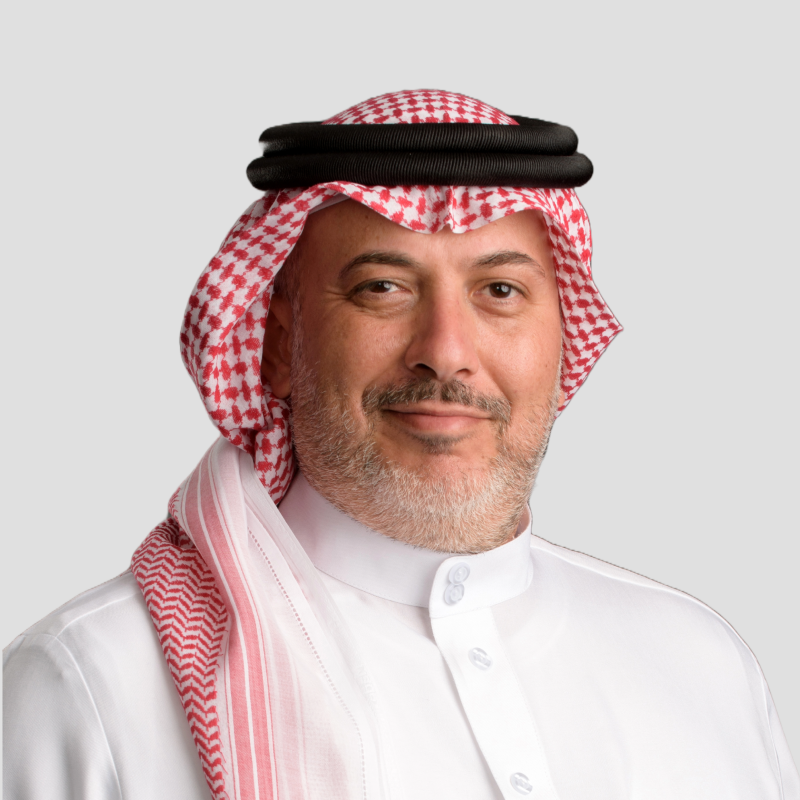
Shaikh Khalifa AlKhalifa
Chief Executive Officer
Bahrain Bourse -

Abdulla AlNuaimi
Chief Executive Officer
Abu Dhabi Securities Exchange -
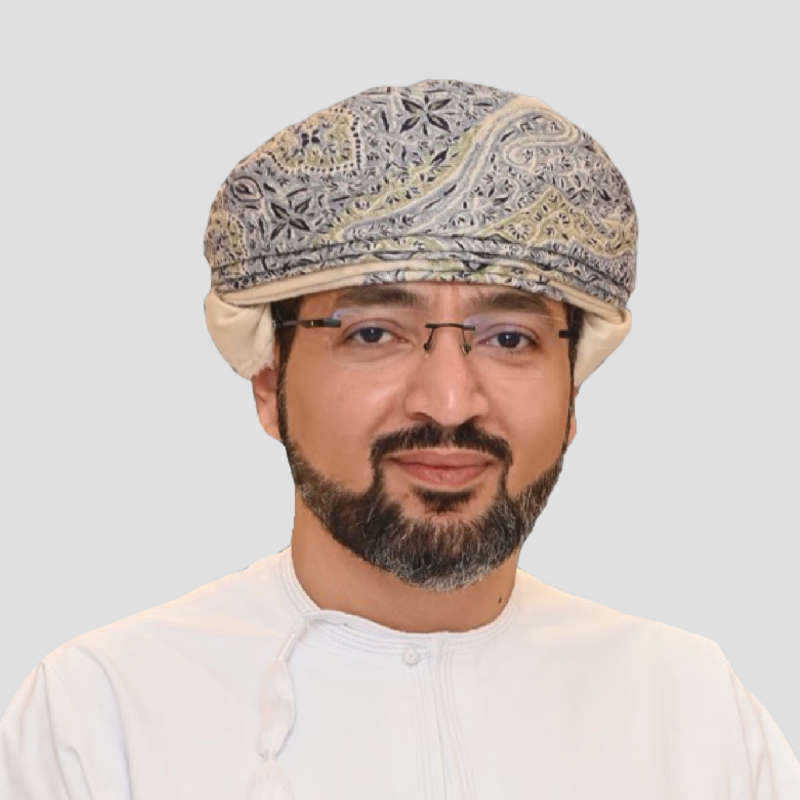
Haitham AlSalmi
Chief Executive Officer
Muscat Stock Exchange -
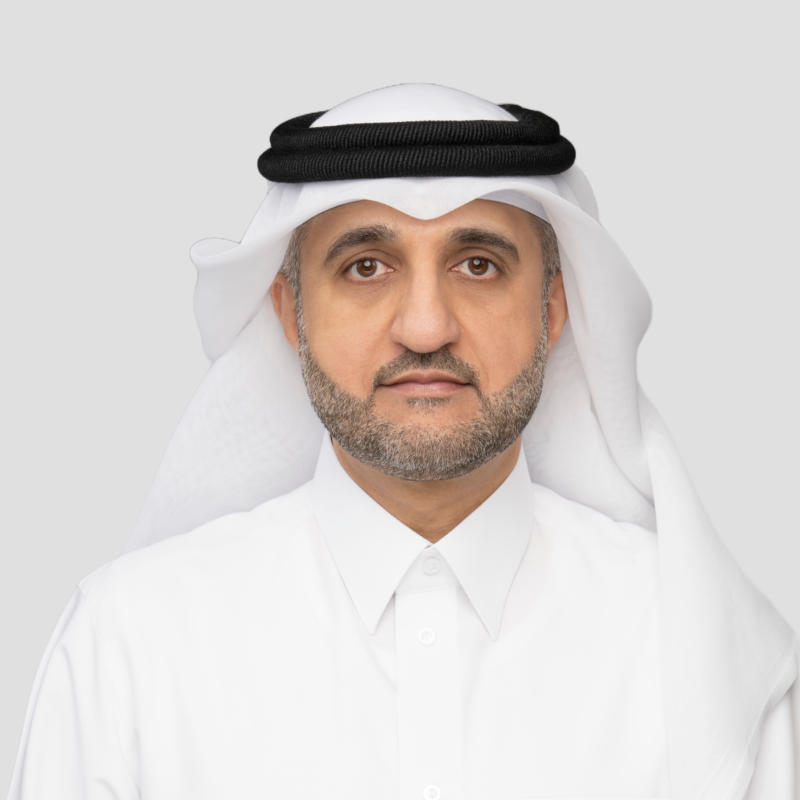
Abdulaziz AlEmadi
Chief Executive Officer
Qatar Stock Exchange
 See them at
See them at
Panel 4: From Desert to Dynamo: The Middle East's Capital Market Transformation
 Biography
Biography
CEO of Muscat Stock Exchange SAOC and chairman of Muscat Clearing and Depository SAOC with over 22 year executive experience capital markets and securities industry in leading financial markets institutions including financial market infrastructure institutions, intermediaries and investment banks. He is master degree holders in Business Administration (M.B.A.) from University of Bedfordshire and a bachelor graduate in Accounting from Sultan Qaboos University.
EXPERIENCE:
Chief Executive Officer ( since 24 Jun 2021 ) Muscat Stock Exchange
Chairman of Muscat clearing & depository company ( since February 2022 )
Vice chairman of The Federation of Euro-Asian Stock Exchanges (since Jun 2023 )
Chairman of Arab Federation of Capital Markets
General Manager (31/3/2017 - 15/6/2021) Muscat Clearing & Depository Co.
Deputy General Manager (3/5/2015 - 31/3/2017) Muscat Clearing & Depository Co.
Senior Vice President (17/3/13 - 15/04/2015) Gulf Baader Capital Markets SAOC
General Manager (1/5/09 to 31/1/2013) International Financial Services LLC (IFS)
Compliance Officer (1/7/08 to 30/4/09) Shurooq Investment Services Holding Co.
Acting Director – Department of Licensed Companies (08/3/06 to 20/10/07) Capital Market Authority
Financial Auditor (9/6/03 to 30/6/08) Capital Market Authority
 See them at
See them at
Panel 4: From Desert to Dynamo: The Middle East's Capital Market Transformation
 Biography
Biography
Shaikh Khalifa bin Ebrahim AlKhalifa currently holds the position of Chief Executive Officer of Bahrain Bourse as well as Vice Chairman and Managing Director of Bahrain Clear. Sh Khalifa also served as the Chairman of Arab Federation of Capital Markets (2022-2023), as well as an active member the GCC Exchanges Committee - GCC General Secretariat. As CEO, Sh. Khalifa drives BHB’s strategy, with the aim of positioning Bahrain Bourse as a ‘Sustainable & Innovative Marketplace’. Sh. Khalifa has more than 20 years of capital markets experience and possesses a wide range of expertise from business development and corporate planning to strategy and operations.
Preceding his appointment as CEO, Sh. Khalifa served as Deputy Director for Central Securities Depository (CSD) and Information Technology, and subsequently Chief Operating Officer, prior to handling the role of Chief Executive Officer. Sh. Khalifa holds an MBA from the CASS Business School – London.
 See them at
See them at
Panel 4: From Desert to Dynamo: The Middle East's Capital Market Transformation
 Biography
Biography
Mr. Abdulaziz Nasser Al-Emadi is the Chief Executive Officer of Qatar Stock Exchange (QSE), in addition to being its Listings Director. He has held the role of ACEO since August 2022.
Mr. Al Emadi currently directs the operations of QSE and contributes to the realization of the "Economic Development" Pillar of Qatar National Vision 2030 by supporting the sustainable development and performance of the QSE and enhancing its economic and investment role.
During his tenure at QSE, Mr. Al Emadi has overseen several important strategic projects, including the recent launch of QSE’s new Trading Platform in cooperation with London Stock Exchange Technology, the launch of the Venture Market in 2021, and the launch of the XBRL based electronic disclosure system in 2020.
Mr. Al-Emadi has served as the Director of the Listing Department since 2007 and has managed successful listings for both government and private sector companies, with total market capitalization exceeding 56 billion Qatari Riyals, including, among others, Mesaieed Petrochemical Holding Company, Qatar Aluminum (QAMCO), and Dukhan Bank. In addition, he has overseen the implementation of several corporate mergers and acquisitions including the merger of Qatar Transport Company with Qatar Navigation and that of First Finance with Barwa Bank. He also played a prominent role in the listing of the first two Exchange-Traded Funds (ETFs) in the market.
Mr. Al-Emadi is a Board Member of Edaa (Qatar CSD), as we all as a member of numerous international and regional committees which specialize in financial markets. He is also a member of several local committees tasked with the development and operation of the Qatari capital markets. Notably, he chaired the Single Window Committee since its establishment until the 7th of July 2023.
Prior to joining QSE, Mr. Al-Emadi gained valuable experience in local and international financial brokerage and portfolio management during his tenure at Commercial Bank of Qatar. He holds a bachelor’s degree in business administration and has over 25 years of experience in the financial sector.
Fireside Chat 1: Saudi Arabia's Economic Horizon: Beyond Growth on the International Stage

As the Kingdom's economy continues to reach and surpass key milestones—(trillion-dollar economic standing, non-oil activities half of GDP, investment projected to rise to 28% of GDP by 2030, and economists predicting stronger FDI inflows)—the messages seem to say there is still much more to come on the horizon. With significant strides in tourism and events like Expo 2030 and the FIFA World Cup 2034 confirmed, how does the Kingdom envision its position on the international stage, and what more opportunities do we see for it ahead?
Panel 1: The Proliferation of Potential: Where to Invest in a Multipolar World

As the global economy becomes increasingly multipolar, Hong Kong, United States, United Kingdom and Saudi Arabia emerge as pivotal markets shaping the future of capital flows and investment strategies. This session brings together representatives from the influential regions to discuss how shifting economic power and interconnected markets are redefining opportunities for investors. Panelists will delve into macroeconomic trends that are reshaping global capital flows and impacting investment decisions.
The conversation will also dive into the investment landscapes of these regions, address strategies for balancing risks and rewards in emerging economies, offering practical insights on diversification and building resilient portfolios for sustainable growth in an evolving global financial landscape.
 Speakers
Speakers
-
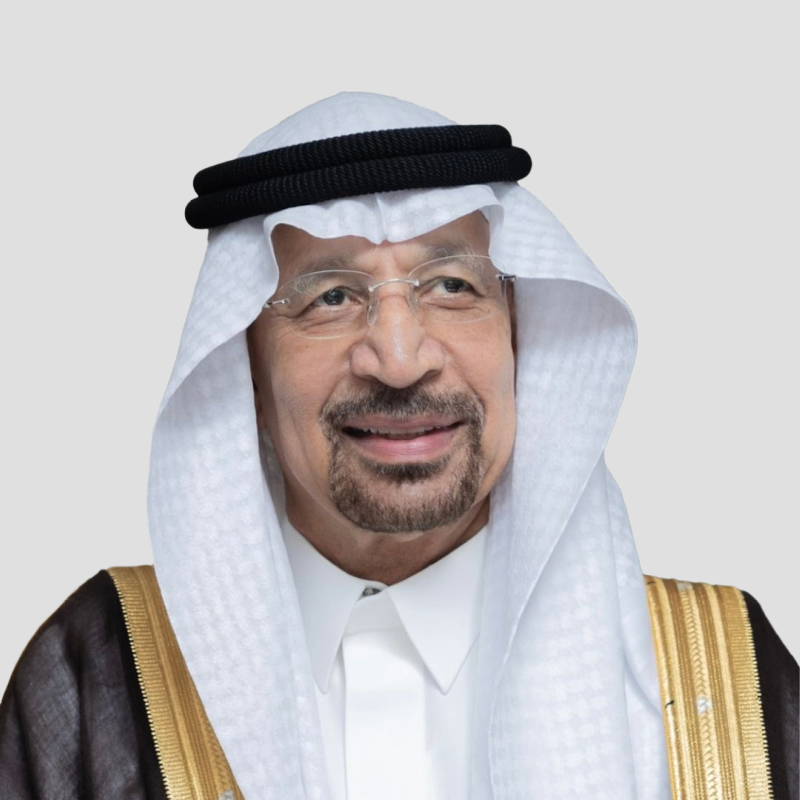
H.E. Eng. Khaled AlFaleh
Minister of Investment of Saudi Arabia
H.E. Eng. Khaled AlFaleh
Minister of Investment of Saudi Arabia

 See them at
See them at
Panel 1: The Proliferation of Potential: Where to Invest in a Multipolar World
 Biography
Biography
His Excellency Khalid A. Al-Falih has been Minister of Investment of the Kingdom of Saudi Arabia since 25 February 2020. He previously served as Minister of Energy, Industry, and Mineral Resources from May 2016 to September 2019, as Minister of Health from April 2015 to May 2016, and as Chairman of the Saudi Arabian Oil Company (Saudi Aramco) Board of Directors from April 2015 to September 2019. Prior to his appointment as Chairman, HE Al-Falih also held key leadership positions across the company, including President and Chief Executive Officer from January 2009 to May 2015.
HE Al-Falih has been consistently recognized for his leadership in spearheading the strategic transformation of leading sectors and organizations across Saudi Arabia. His achievements include driving large-scale business initiatives and industrial projects, building organizational capacity for the benefit of Saudi citizens through economic and social programs, and enhancing the performance and impact of complex organizations. For many years, he has taken a particular interest in leveraging business activities to fuel social development and economic persification; fostering strong collaboration between Saudi Arabia’s public, private, and academic/research sectors; and promoting the importance of the fields of science and digital technology among young people.
HE Al-Falih remains committed to enriching society through the nurturing of entrepreneurship and innovation; the creation of a knowledge-based society equipped to meet the challenges of the future; the creation of new business and human resource development opportunities; and the protection of the environment. His appointment as Minister of Investment is in line with HE Al-Falih’s exceptional achievements in advancing private sector growth in the Kingdom, which is a central driver of Vision 2030, Saudi Arabia’s ongoing economic persification plan. In 2009, HE Al-Falih received the prestigious King Abdulaziz Medal (First Class), which is Saudi Arabia’s highest civilian honor for service to the country. HE Al-Falih has received many notable awards and recognitions throughout his career. In 2018, the Japanese government awarded him its national decoration, The Order of the Rising Sun. In 2016, he was recognized as Energy Intelligence Petroleum Executive of the Year.
HE Al-Falih earned a Bachelor of Science degree in Mechanical Engineering from Texas A&M University in 1982 and completed his MBA at KFUPM in 1991. In 2009, he received an honorary doctorate from the Korea Advanced Institute of Science and Technology.
Fireside Chat 2: Shaping Saudi Arabia’s Economic Vision: Innovation, Growth, and Global Integration

This fireside chat will explore the Kingdom’s strategic priorities for economic diversification and sustainable growth. The conversation will focus on the evolving global landscape, Saudi Arabia’s efforts to attract foreign direct investment (FDI), and the pivotal role of innovation in driving development. The discussion will also delve into how Saudi Arabia is aligning its national planning objectives with Vision 2030, ensuring resilience and adaptability in a rapidly changing economic environment.
Panel 2: Saudi Arabia’s Role as a Transformative Force in Shaping Global Progress and Economic Growth

This focused panel will bring together the most prominent figures shaping Saudi Arabia's economic and investment landscape to discuss the country’s efforts to position itself as a global financial hub. The discussion will explore strategic initiatives to drive foreign direct investment (FDI), evaluating enhanced regulatory frameworks, and how it fosters collaboration with international markets. With a focus on the non-oil sector, the panel will examine how the Kingdom is transforming its financial environment with innovation and sustainable growth in mind and leveraging global partnerships to attract investors.
Fireside Chat 3: Redefining Capital Markets: Navigating Change in a New Economic Landscape

Macroeconomic dynamics are increasingly shaped by factors beyond traditional economic measures. In this new era of change, investor demand is shifting towards considerations that extend beyond just financial performance. Are capital markets charting a new course? As questions about where and how to invest become more pressing, this session will explore the future of capital markets, and the significance of diversification and investment strategies, highlighting the necessity of foresight and strategic thinking.
 Speakers
Speakers
-
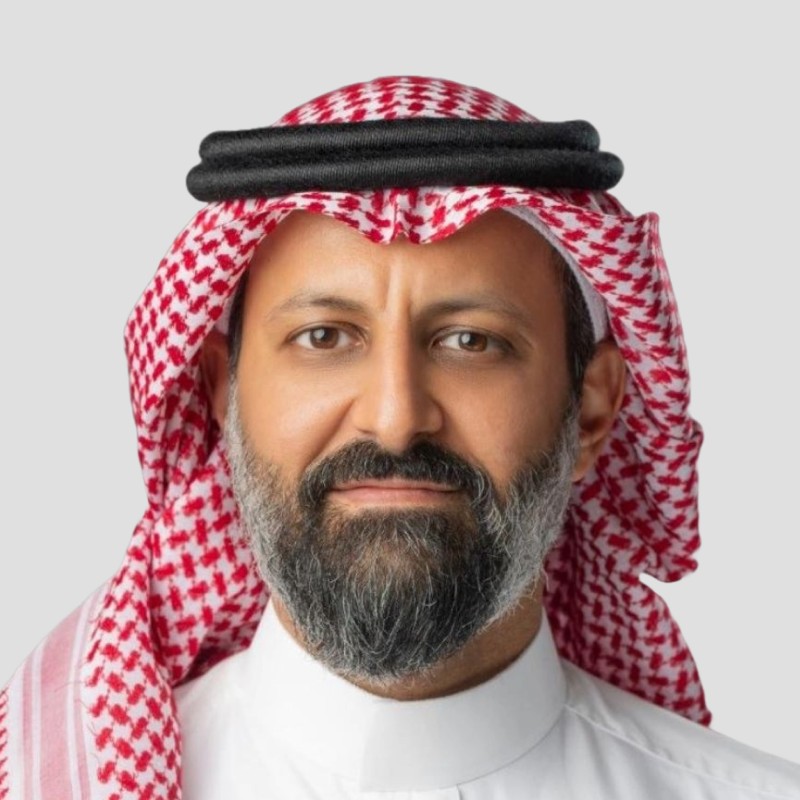
H.E. Mohammed ElKuwaiz
Chairman
Capital Market Authority of Saudi Arabia
 See them at
See them at
Fireside Chat 3: Redefining Capital Markets: Navigating Change in a New Economic Landscape
 Biography
Biography
Mr. Mohammed A. El - Kuwaiz was appointed as the Chairman of the board of the Capital Market Authority (CMA) of Saudi Arabia in July 2017. Prior to being Chairman, Mr. El - Kuwaiz was the Vice Chairman of the board of the CMA since August 2016.
Prior to joining the CMA , Mr. El - Kuwaiz was the Co - founder and CEO of Derayah Financial Company. He was formerly a management consultant with McKinsey & Company. Prior to that, he worked in investment banking and corporate finance with Samba Financial Group.
Moreover, Mr. Elkuwaiz has served as a board member in the Public Pension Agency, Al Yamamah Company for Reinforcing Steel Bars, Al Bilad Bank, in addition to his membership in the Se curities and Investments Committee in Riyadh Chamber of Commerce and Industry, the Investment Committee in King Faisal Foundation, the Investment Committee in Sulaiman Bin Abdulaziz Al - Rajhi Holding Company, as well as the CMA’s Advisory Committee .
Mr. El - Kuwaiz obtained an MBA from New York University’s Leonard N. Stern School of Business, specializing in finance and entrepreneurship in 2003 . He received a Bachelors of Administrative Sciences with Honors from King Saud University in Saudi Arabia majoring in Law in 1998
Panel 3: Capital Markets 3.0: A Global CEO Perspective

Strategies for enhancing market resilience and risk management against global shocks
The role of exchanges in promoting ESG standards and sustainable finance
Market integration, collaboration and the opportunity to improve global market connectivity
The efforts to align regulatory frameworks across different markets
Panel 4: From Desert to Dynamo: The Middle East's Capital Market Transformation

Exploring the future of GCC markets and their role in attracting foreign direct investment (FDI) to stimulate international demand. As global supply chain strategies are evolving and investor demand is changing collaboration between and within regional blocs can help create opportunities.
Closer collaboration on areas such as cross-listings
Competitive strengths and common values
Trends: what are investors focused on
Global headwinds and its effect on the region
Embracing sustainability in the transition to a post-oil economy
Panel 5: Navigating Opportunities in an Evolving Landscape

Exploring the latest strategies and diversification trends shaping the industry and how technology is revolutionizing the sector. This panel will analyse shifting client preferences and behaviours, highlighting how investment banks and Asset Management firms can adapt to meet the needs of tomorrow’s investors. How can the Power of Collaboration create potential synergies between firms to enhance offerings and drive innovation in an increasingly competitive market.
 Speakers
Speakers
-
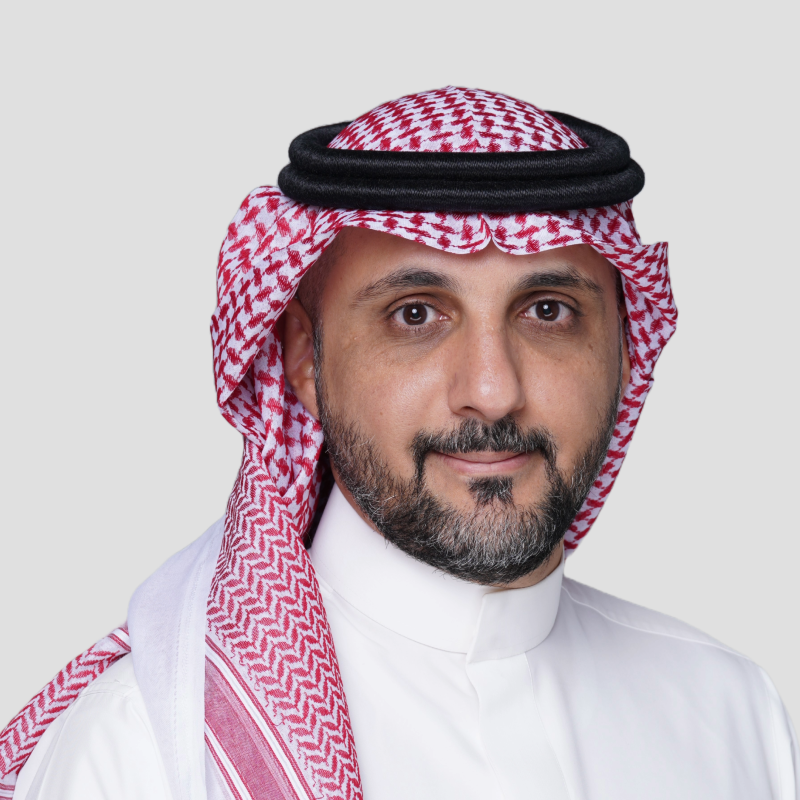
Mohammed AlShammasi
Chief Executive Officer
Derayah Financial -
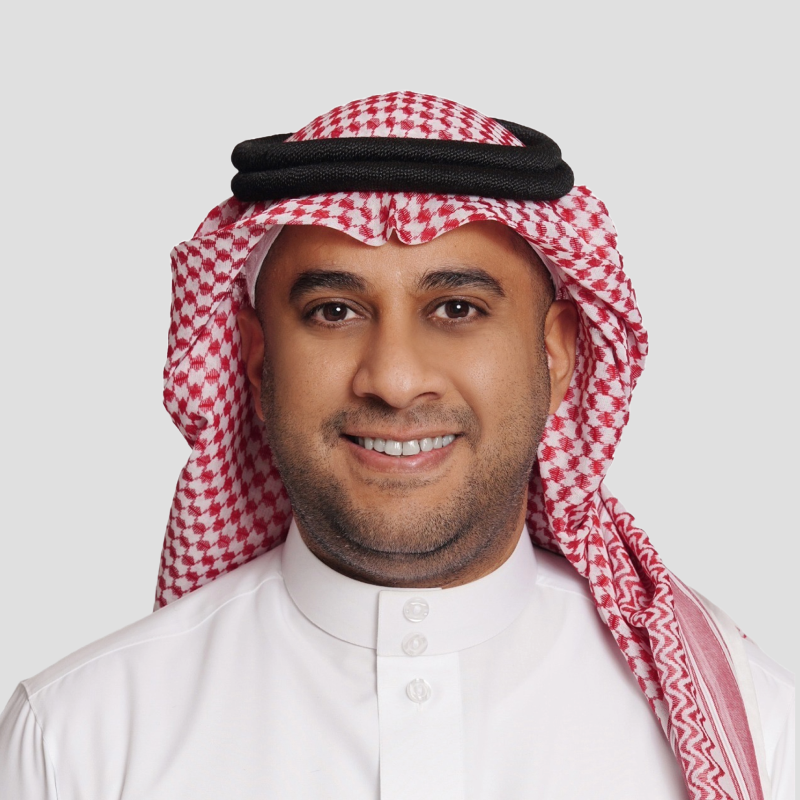
Naif AlMesned
Managing Director & Chief Executive Officer
AlJazira Capital -
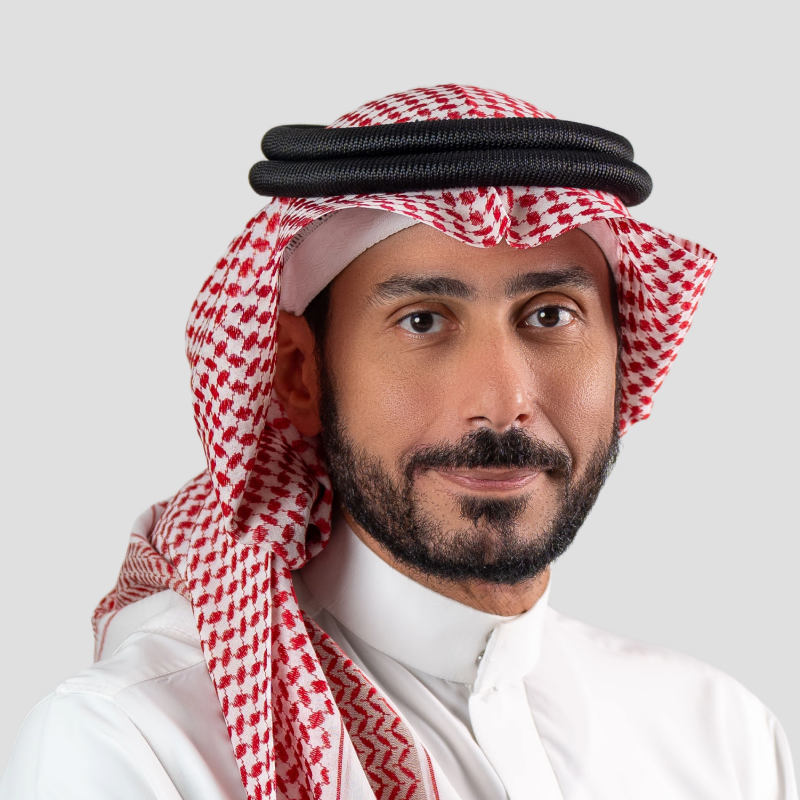
Loai Bafaqeeh
Head of Securities and Acting Chief Technology Officer
SNB Capital
 See them at
See them at
Panel 5: Navigating Opportunities in an Evolving Landscape
 Biography
Biography
Loai Bafaqeeh has been Head of Securities & Acting Chief Technology at SNB Capital. In his current role Loai has successfully introduced a new platform and products, redefined the business strategy and increased profitability. Prior to his current role, Loai was CEO of the Quality of Life part of the Vision 2030 Program and before that he led the Microsoft Arabia operation, with a remit that also included Public Sector sales and ma rketing. While at Microsoft Loai worked and implemented many transformational projects with the Saudi Government. Previous roles include Head of Marketing at SNB Capital covering Investment Services, Brokerage, Investment Banking and Asset Management and he began his career at Procter & Gamble where he worked in the healthcare, food and beverage and fem care sectors. Loai has a Bachelor of Mechanical Engineering from King Abdul - Aziz University in Saudi and an MBA from the Arabic Academy for Science and Technology.
 See them at
See them at
Panel 5: Navigating Opportunities in an Evolving Landscape
 Biography
Biography
The CEO of Derayah where he is responsible for the company’s strategy and overall business and commercial activities. Mohammed has more than 20 years of experience in the areas of financial services, financial markets, corporate strategy and investment management and advisory. Previously Mohammed was Chief Investment Officer for Derayah since 2014. He was responsible for the overall investment activities covering multiple asset classes. Before that he was Head of Investment Management at a leading bank affiliated investment company where he managed multiple teams with more SAR 30 billion of assets under management. Prior to that, he was a Portfolio Manager at leading local bank. Mohammed has a successful track record of generating superior investment results, building investment processes and teams and providing professional advice. Mohammed structured award winning investment products and strategies. Mohammed graduated with honors from King Fahd University of Petroleum and Minerals. He attended several management and leadership programs at Stanford University, Harvard Business School, Duke University and INSEAD Business School.
 See them at
See them at
Panel 5: Navigating Opportunities in an Evolving Landscape
 Biography
Biography
Naif Almesned is the CEO & Managing Director of Aljazira Capital, a leading investment firm in Saudi Arabia. Naif is well versed in the securities business sector in the kingdom, with diversified experience in the field. During his Journey, Naif has developed seasoned capabilities in developing and implementing corporate and business strategies for success of organizations. Beyond his leadership at Aljazira Capital, Naif serves as a board and committee member in several private and publicly listed entities.
Naif holds an MBA from Clark University and a Bachelor's in Accounting from King Fahd University of Petroleum & Minerals. He is a CPA and has completed executive leadership programs at Wharton, MIT, and Harvard.
Panel 6: Forging Connections in Chemicals, Energy, and Oil & Gas: Shaping a Sustainable Future

This panel will explore the latest developments in the chemicals, energy, and oil sectors, focusing on their interconnected roles in driving economic growth and sustainability. Panellists will discuss how innovation and sustainability initiatives are shaping these industries, while addressing global challenges and emerging opportunities. The session will also highlight the technological advancements that are happening in these sectors in the region as companies look to support industrial growth and ensure long-term resilience.
 Speakers
Speakers
-

Youssef Salem
Chief Executive Officer
Abu Dhabi National Oil Company (ADNOC) -
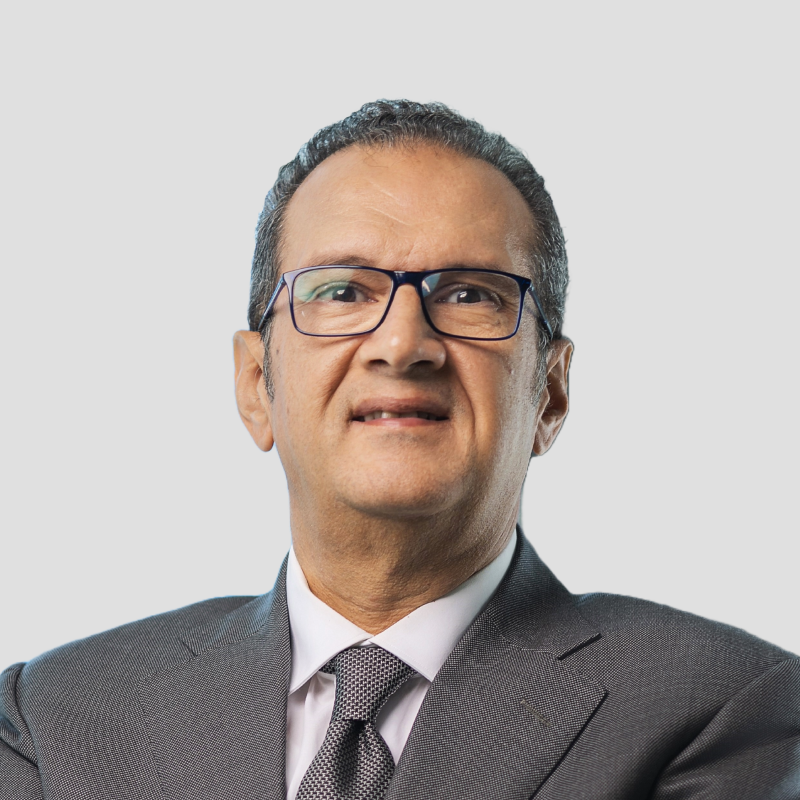
Dr. Mohamed Farouk
Chief Executive Officer
ADES
 See them at
See them at
Panel 6: Forging Connections in Chemicals, Energy, and Oil & Gas: Shaping a Sustainable Future
 Biography
Biography
Youssef Salem is CFO of ADX - listed ADNOC Drilling, world’s largest integrated driller, IC Member of Enersol, energy technology JV between ADNOC Drilling and Alpha Dhabi, and Director at Gordon Technologies, real time drilling measurement and analytics portfolio company of Enersol. Youssef’s experience includes being CFO of AIQ, MENA’s fastest unicorn and first AI unicorn; CFO & Director at Swvl, world’s first mass transit marketplace to go public and MENA’s first unicorn to list on Nasdaq; Executive Director & Senior Advisor at Moelis with 13 years of investment banking experience, executing >$100bn of capital raises, financings, M&A, and restructurings across >60 transactions; Founder of Qora71, a Hub71 backed venture investors syndicate; Entrepreneur in Residence at Hub71; Adjunct Professor of Practice at the American University in Cairo; and Board / Advisory Board Member in multiple technology companies and funds. He is a CFA Charterholder, Fellow of the Society of Actuaries, youngest CFO on both Nasdaq and ADX and was featured in Forbes Middle East 30 under 30 list.
Dr. Mohamed Farouk
Chief Executive Officer
ADES

 See them at
See them at
Panel 6: Forging Connections in Chemicals, Energy, and Oil & Gas: Shaping a Sustainable Future
 Biography
Biography
Dr. Mohamed Farouk has been a me mber of ADES' Board as the Vice Chairman and has served as Chief Executive Officer since 2012. Under his leadership, ADES has transformed from a local operation into a leading global rig operator, headquartered in Al Khobar, Saudi Arabia since 2022. Dr. Fa rouk has played a key role in the company’s expansion into new markets and services.
He brings a wealth of experience from his previous role as Senior Vice President at Invensys Operations Management, where he was based in Texas overseeing global delivery and operations. Dr. Farouk holds a PhD in Systems and Control Engineering from Case Western Reserve University, Ohio, a Master’s degree in Electrical Engineering from Cairo University, and a Bachelor’s degree in Electrical Engineering from the same institu tion. Currently, he also serves as Director on the Board of Schneider Electric Engineering Services and Rameda Pharma ceutical ."
Panel 7: The Role of Financial Institutions in Driving Innovation and Economic Transformation in Saudi Arabia

This panel will examine how financial institutions, including banks and capital companies, are shaping Saudi Arabia’s economic transformation. Discussions will include key areas such as digital innovation, financial inclusion, and the evolving needs of customers. Panelists will share insights into meeting evolving customer needs, fostering operational excellence, and leveraging advanced technologies to reshape financial services. The conversation will explore the critical role of financial institutions in building a resilient ecosystem aligned with the Kingdom’s Vision 2030 goals.
 Speakers
Speakers
-
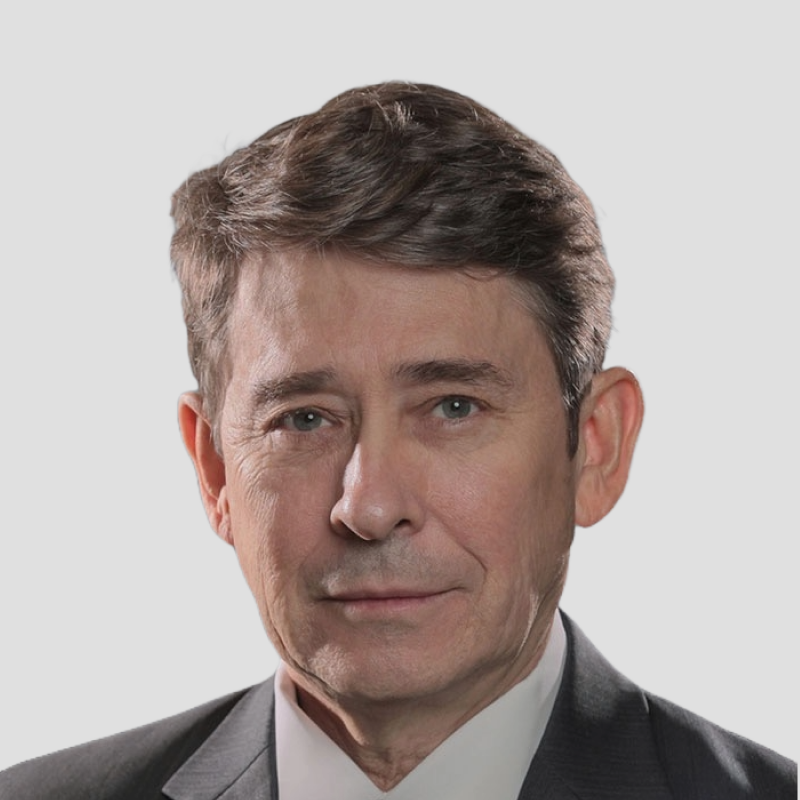
Tony Cripps
Managing Director & Chief Executive Officer
Saudi Awwal Bank (SAB)
 See them at
See them at
Panel 7: The Role of Financial Institutions in Driving Innovation and Economic Transformation in Saudi Arabia
 Biography
Biography
Tony Cripps is the CEO and Managing Director of SAB, the leading international bank in the Kingdom of Saudi Arabia. He also Chairs the ESG Saudi Banks Advisory Committee
Before his current role, Tony Cripps is Chief Executive Officer of HSBC Singapore, the leading international bank in Singapore supporting retail, business, corporate and institutional banking customers through its network of local branches and offices.
Tony has worked in banking for more than 30 years, with management roles in institutional banking, treasury, trading and sales businesses, transaction banking, information technology and operations. He was appointed to his current role in May 2021.
He first joined HSBC in 1986 as a floor trader for the Sydney Futures Exchange and went on to manage Australia’s derivatives business before being appointed Head of Foreign Exchange and Rates Strategy for HSBC Asia Pacific.
In the early 1990’s Tony worked with Sydney University pioneering predictive neural network programmes, an early adoption of Artificial Intelligence (AI), which was later commercialized. The research paper was published by the London School of Economics
From 2000 to 2006, Tony was based in Hong Kong as Head of e-Commerce for HSBC Asia Pacific and then in London as Head of e-Commerce, Global Banking and Markets for the HSBC Group. In 2006, Tony returned to Australia as Head of Global Markets, subsequently taking up the expanded role of Head of Global Banking and Markets.
Tony was the CEO of HSBC Australia from 2013. Under his leadership, the bank experienced a period of significant growth.
Prior to this, Tony was President and Chief Executive Officer of HSBC Philippines between 2010 and 2012, where he also served as Chairman, HSBC Savings Bank and HSBC Insurance Brokers, Inc., Chairman and Trustee, HSBC Retirement Trust Fund, Inc. and Director of OCLP Holdings, Inc.
Tony was appointed to the Board of HSBC Singapore in 2016. He was also appointed as HSBC Group General Manager in 2016.
Panel 8: Data driving Capital Markets: Monetising Insights and the Future of Data in Shaping Capital Markets

Sell-side entities, including investment banks and brokerages, generate valuable proprietary data from market analysis, trading, and client interactions, offering insights into market trends, consumer behaviour, and economic indicators. However, monetizing this data presents challenges, particularly due to regulatory constraints around data privacy and security. Firms must comply with these regulations while investing in advanced analytics infrastructure to manage large volumes of data. On the buy-side, firms leverage this data to gain competitive insights and enhance investment strategies. Meanwhile, infrastructure companies such as stock exchanges and clearinghouses also play a significant role in data monetization, using their vast transactional data to provide services like predictive analytics and risk management solutions. With the rapid advancements in AI and the increasing importance of data-driven solutions, this session will explore the future of data in capital markets. Can we envision a world where data-backed solutions become central to capital market development?
 Speakers
Speakers
-

Mehdi Miri
Chief Executive Officer
DirectFN -

Katharine Furber
Global Head of Emerging Markets Trading Product
Bloomberg LP
Panel 9: Shaping the Future of Real Estate and Construction: Innovation and Growth in a Transforming Economy

This panel will explore the evolving landscape of the real estate and construction sectors in Saudi Arabia and the region, focusing on how leading companies are leveraging innovation, sustainable practices, and strategic partnerships to drive growth. Panelists will discuss trends, investments, and key initiatives shaping the sector, while addressing opportunities and challenges in balancing rapid growth with sustainability and innovation. The discussion will highlight how these industries are contributing to the Kingdom’s long-term economic goals and supporting Vision 2030 by meeting the demands of a growing population and fostering economic diversification.
 Speakers
Speakers
-

Fahad Alaslami
Chief Financial Officer
Al Akaria -

Eng. Samia Nina Hajjou
Strategy Vice President
Al Kathiri Holding -

Leila AlSuhaimi
Sustainability Manager
Retal Urban Development Company
 See them at
See them at
Panel 9: Shaping the Future of Real Estate and Construction: Innovation and Growth in a Transforming Economy
 Biography
Biography
Fahad Alaslami is the Group CFO of Al Akaria with over 23 years of, He started his career with STC and served for 10 years., Early 2011 he moved to work with two of the biggest Saudi national projects where he spent total of three years in managing accounting functions, these projects are SATORP and Maaden Aluminum that are owned by Saudi Aramco and MAADEN respectively. In April 2014 Fahad was appointed as the CFO of a publicly listed company which is SPIMACO the biggest pharmaceutical company in KSA. After three years with SPIMACO, in April 2021 he was appointed as the CFO of National Housing Company (NHC) which was a newly established holding company owned by Ministry of Housing as its investment arm. And after 4 years with NHC, he moved to Al Akari a (PIF Subsidiary) as Group CFO in April 2021.
Fahad is a CFA Charter holder, SOCPA Fellow, and CMA holder, and he is also an independent board member, NRC and Audit Member at Mouwasat Medical Services Company a publicly listed health care company and he is also the Vice Chairman and Audit Committee chair of Alwidyan real Estate Co.
Eng. Samia Nina Hajjou
Strategy Vice President
Al Kathiri Holding

 See them at
See them at
Panel 9: Shaping the Future of Real Estate and Construction: Innovation and Growth in a Transforming Economy
 Biography
Biography
Samia Hajjou is a dynamic strategist with a distinguished academic and professional background. She holds a degree in Mechanical Aeronautics and Aerospace Engineering and a Master’s in Project Management from the renowned Centrale Paris.
As Head of Strategy at Al Kathiri Holding, Samia spearheads initiatives that drive innovation, align business objectives with Saudi Vision 2030, and expand the company’s footprint in global markets. Her career spans engineering, management consulting, and corporate strategy, equipping her with a unique ability to integrate advanced technologies, sustainability, and operational excellence across diverse sectors.
Samia’s expertise lies in transforming challenges i nto opportunities, delivering impactful solutions that foster growth and resilience in a rapidly evolving economic landscape.
Fireside Chat 4: Pioneering Leadership - Driving Global Impact through Leadership, Innovation and Economic Growth

This engaging fireside chat will delve into the critical role of leadership, innovation, and economic diversification in today’s rapidly evolving global business environment. The discussion will highlight how strategic connections strengthen international relationships, advance Saudi's economic goals, and shape the future of business. The session will also examine opportunities and challenges in fostering sustainable growth and implementing effective leadership strategies in the local market.
Panel 10: At the Crossroads of ESG: Navigating Commitments and Future Investment Strategies

ESG issues have gained significant traction in recent years, though some question whether the momentum is slowing. Investors are increasingly factoring ESG considerations into their decision-making, while companies are integrating ESG principles into their core strategies. As countries like Saudi Arabia and the UAE pursue ambitious sustainability goals (Saudi Arabia aiming for net zero by 2060 and 50% renewable energy by 2030), this panel will analyse how companies across sectors are responding to these challenges.
The discussion will explore the role of innovation in driving sustainable growth, how businesses are adapting to the evolving regulatory environment, and how they are leveraging ESG to create long-term value. With insights from leaders in energy, finance, and technology, the panel will provide a comprehensive look at the opportunities and challenges in aligning business strategies with sustainability goals, both regionally and globally.
Fireside Chat 5: The Power of Connections: At the Intersection of Diplomacy, Economic Policy, and Global Investment Trends in Shaping the Future of Global Capital Markets

This session will delve into the intersection of diplomacy, economic policy, and global investment trends, focusing on how Saudi Arabia is strategically positioning itself as a global financial hub. Gain first-hand insights into the Kingdom’s initiatives to attract foreign direct investment (FDI) and how it is fostering international partnerships in capital markets, illustrating how these efforts align with Vision 2030 to drive economic growth and stimulate global investor interest.
The discussion will also highlight Saudi Arabia’s influence in global trade flows and cross-border investment strategies, emphasising its geographic and economic advantages in promoting deeper market integration. Additionally, the session will explore the Kingdom’s commitment to enhancing investor confidence and building a resilient financial ecosystem, reinforcing its role as a transformative force in global capital markets.






























































